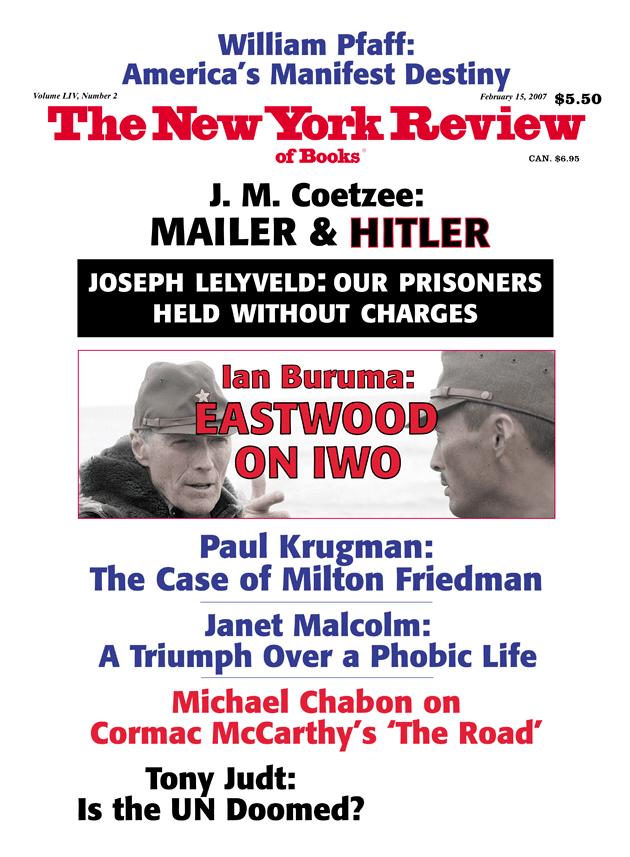The following is an excerpt from Kofi Annan’s final address to the UN Security Council on the Middle East, on December 12, 2006.
One of the most frustrating aspects of the Israeli–Palestinian conflict is the apparent inability of many people on both sides to understand the position of the other, and the unwillingness of some to even try. As a true friend and supporter of both sides, I would like to address frank messages to each.
It is completely right and understandable that Israel and its supporters should seek to ensure its security by persuading Palestinians, and Arabs and Muslims more broadly, to alter their attitude and behavior toward Israel. But they are not likely to succeed unless they themselves grasp and acknowledge the fundamental Palestinian grievance—namely, that the establishment of the State of Israel involved the dispossession of hundreds of thousands of Palestinian families, turning them into refugees, and was followed nineteen years later by a military occupation that brought hundreds of thousands more Palestinians under Israeli rule.
Israel is justifiably proud of its democracy and its efforts to build a society based on respect for the rule of law. But Israel’s democracy can thrive only if the occupation over another people ends. Former Prime Minister Ariel Sharon acknowledged as much. Israel has undergone a major cultural shift since the days of Oslo: all of Israel’s major political parties now acknowledge that Israel needs to end the occupation, for its own sake, and for the sake of its own security.
Yet thousands of Israelis still live in territories occupied in 1967—and more than one thousand more are added every month. As Palestinians watch this activity, they also see a Barrier being built through their land in contravention of the Advisory Opinion of the International Court of Justice, as well as more than five hundred checkpoints to control their movement, and the heavy presence of the Israeli Defense Forces. Their despair at the occupation only grows, as does their determination to resist it. As a result, some tend to invest much of their trust in those who pursue the armed struggle rather than a peace process that does not seem to yield the coveted goal of an independent state.
I agree with Israel and its supporters that there is a difference—moral as well as legal—between terrorists, who deliberately target civilians, and regular soldiers who, in the course of military operations, unintentionally kill or wound civilians despite efforts to avoid such casualties. But the larger the number of civilian casualties and wounded during these operations, and the more perfunctory the precautions taken to avoid such losses, the more this difference is diminished. The use of military force in densely populated civilian areas is a blunt instrument that only produces more death, destruction, recrimination, and vengeance. And as we have seen, it does little to achieve the desired goal of stopping terrorist attacks. Israelis may reply that they are merely protecting themselves from terrorism, which they have every right to do. But that argument will carry less weight as long as the occupation in the West Bank becomes more burdensome and the settlement expansion continues. Israel will receive more understanding if its actions were clearly designed to help end an occupation rather than to entrench it.
We should all work with Israel to move beyond the unhappy status quo and reach a negotiated end to the occupation based on the principle of land for peace….
It is completely right and understandable to support the Palestinian people, who have suffered so much. But Palestinians and their supporters will never be truly effective if they focus solely on Israel’s transgressions, without conceding any justice or legitimacy to Israel’s own concerns, and without being willing to admit that Israel’s opponents have themselves committed appalling and inexcusable crimes. No resistance to occupation can justify terrorism. We should all be united in our unequivocal rejection of terror as a political instrument….
Some may feel satisfaction at repeatedly passing General Assembly resolutions or holding conferences that condemn Israel’s behavior. But one should also ask whether such steps bring any tangible relief or benefit to the Palestinians. There have been decades of resolutions. There has been a proliferation of special committees, sessions, and Secretariat divisions and units. Has any of this had an effect on Israel’s policies, other than to strengthen the belief in Israel, and among many of its supporters, that this great Organization is too one-sided to be allowed a significant role in the Middle East peace process?
Even worse, some of the rhetoric used in connection with the issue implies a refusal to concede the very legitimacy of Israel’s existence, let alone the validity of its security concerns. We must never forget that Jews have very good historical reasons for taking seriously any threat to Israel’s existence. What was done to Jews and others by the Nazis remains an undeniable tragedy, unique in human history. Today, Israelis are often confronted with words and actions that seem to confirm their fear that the goal of their adversaries is to extinguish their existence as a state, and as a people.
Advertisement
Therefore, those who want to be heard on Palestine should not deny or minimize that history, or the connection many Jews feel for their historic homeland. Rather, they should acknowledge Israel’s security concerns, and make clear that their criticism is rooted not in hatred or intolerance, but in a desire for justice, self-determination, and peaceful coexistence.
This Issue
February 15, 2007


